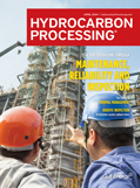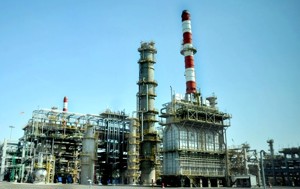Technip awarded EPC contract for ENOC refinery expansion
Emirates National Oil Co. (ENOC) revealed plans to expand the capacity of its ENOC Processing Company (EPCL) Jebel Ali facility by 50%. The expansion project comprises three separate packages at an estimated value in excess of $1 B. The expected date for commercial production is Q4 of 2019.
The main package of the project will add a new condensate processing train to the existing facility, expanding its capacity to 210 Mbpd, from its existing current 140 Mbpd. Additional processing units will also be added. These include a new LPG/naphtha hydrotreater, an isomerization unit, kerosene hydrotreater, and a diesel hydrotreater. These units will ensure that the refinery’s fuel products, which include gasoline, jet fuel and diesel, are capable of meeting expanding domestic fuel demand.
Commenting on the project, His Excellency Saif Humaid Al Falasi, Group CEO of ENOC, said: “The UAE's energy demand is growing at about 9% a year. Since our establishment, we have grown into a responsible, profitable and sustainable organization that has continuously met these needs. An emerging aviation sector and the evolving logistics needs of numerous businesses invoke a strategy that demands foresight. The refinery expansion is part of this strategy to develop enabling infrastructure that fuels the nation’s growth.”
In response to the UAE’s drive towards clean energy, the expanded EPCL facility will manufacture products for the local market meeting stringent Euro 5 standards.
Technip, which was contractor on the Jebel Ali refinery from 1997 to 1999, has been awarded a large contract, covering the engineering, procurement and construction (EPC) for the design and construction of the processing unit. The group’s operating center in Rome, Italy, will manage the project. The front end engineering design was carried out by KBR. The licensor technology has been provided by UOP, Axens and KT.
The subsequent two packages of the project will include the construction of storage tanks and a 31,000 sq ft warehouse. Suitable contractors are currently being short listed prior to the tendering process for both packages.
EPCL over the years has been continuously expanding and improving its production to cater for the ever growing needs of the local and international markets. It was first commissioned in 1999, starting with two condensate distillation units with a name plate capacity of 60 Mbpd each, four MEROX units, and storage capacity of 1.2 MMcm.
In 2010, at a cost of $850 MM, EPCL commissioned additional units for the production of low-sulfur naphtha, and reformate. Both are critical components for the blending of gasoline and as a feedstock to petro-chemical plants. Subsequent to this, in 2012, EPCL completed a debottlenecking project, increasing capacity to 140 Mbpd.
ENOC is constantly focusing on expanding capacities in order to support domestic energy demand in alignment with Dubai Plan 2021 and in preparation for EXPO 2020. Along with the development of its refinery capabilities, the company will also extend its service station portfolio by 50% by 2020.
The facility also includes an ISO 9001:2015/ ISO 17025:2005 certified laboratory, and is the only accredited organization in the Middle East that is capable of carrying out critical tests for gasoline and jet fuel products.







Comments